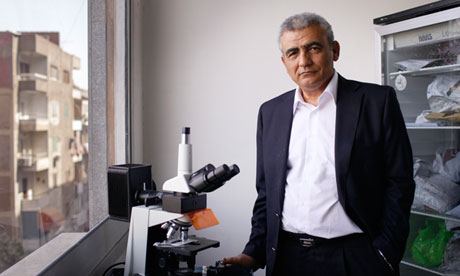
A masked man looks at a model of the coronavirus of SARS at city hall in Taipei in 2003. A SARS epidemic killed more than 800 people in 2003.
New coronavirus case in Britain brings worldwide total to 12; WHO urges vigilance on SARS-like disease
The latest coronavirus patient is a relative of the two other Britons diagnosed with the virus last week, officials said. The first of the family to contract the SARS-like disease had recently traveled to the Middle East.
AFP RELAXNEWS
Monday, February 18, 2013
...
Read more: New coronavirus case in Britain brings worldwide total to 12; WHO urges vigilance on SARS-like disease - NY Daily News





